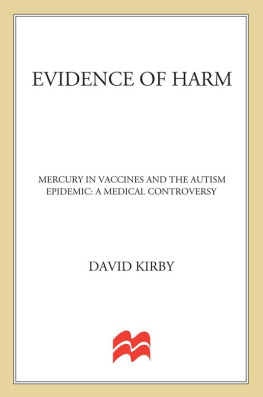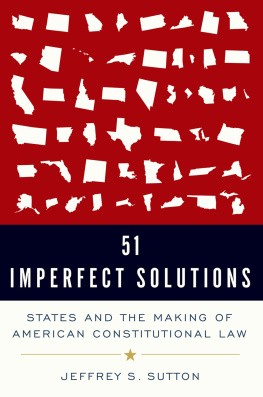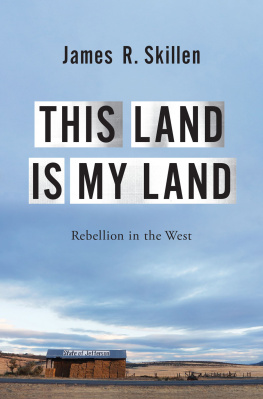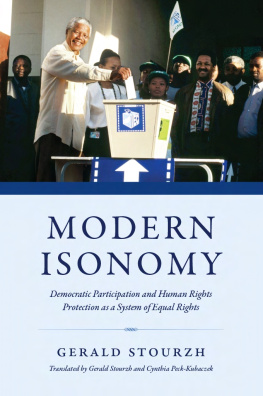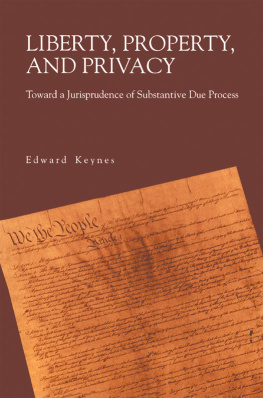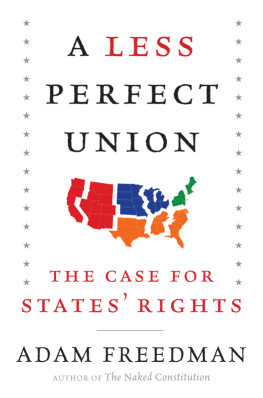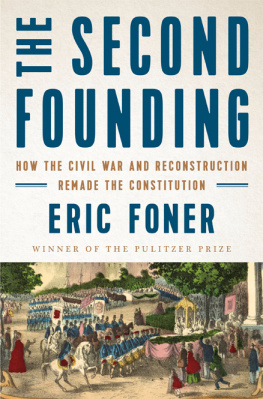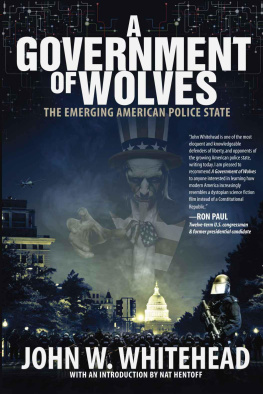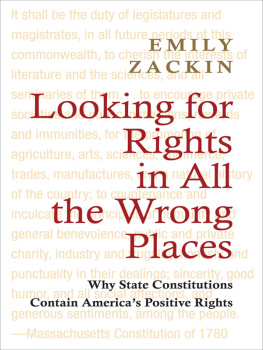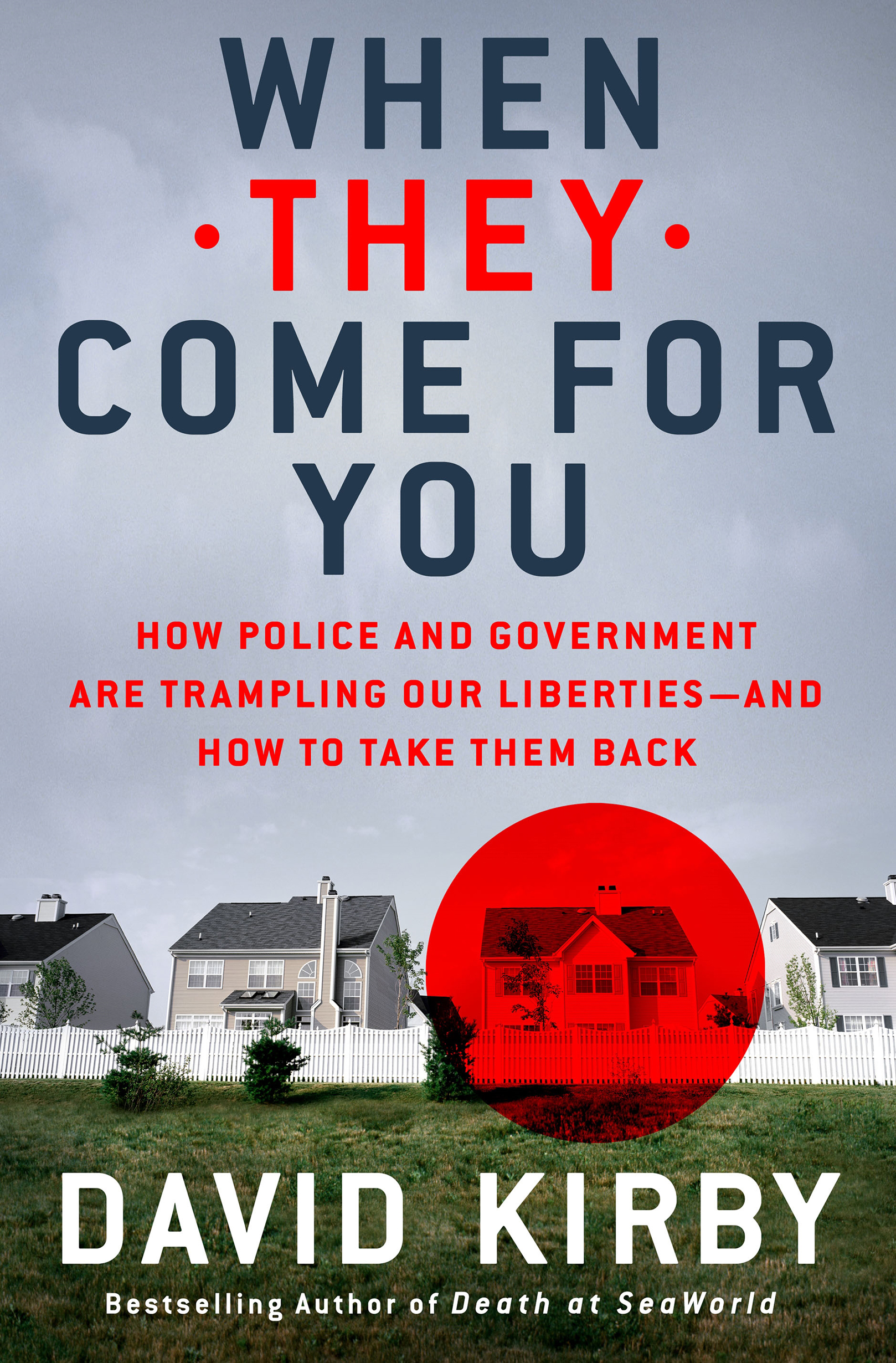The author and publisher have provided this e-book to you for your personal use only. You may not make this e-book publicly available in any way. Copyright infringement is against the law. If you believe the copy of this e-book you are reading infringes on the authors copyright, please notify the publisher at: us.macmillanusa.com/piracy.
Of the four investigative books that I have written, this was by far the most challenging. Choosing what to include, and how to do justice to hundreds of individual stories, was less difficult than deciding what not to include. Each chapter, with its extensive legal backstory, offered material rich enough to warrant an individual book on its own. Space limitations did not allow me to include much of the research and interviews I had conducted to illuminate the stories.
And what of the material that did not make the final draft? Over my five years of research, I considered other trends that fall under the rubric of government overreach. Such crucial matters included reproductive rights, perennially under assault in courts and statehouses; treatment of undocumented immigrants, and their small children, who are entitled to the same Bill-of-Rights protections against government abuse guaranteed to all people on American soil; the federal crackdown on medical and recreational marijuana, especially in the Obama years; and the horrendous treatment of Muslim Americans at ports of entry to the United States.
The omission that I regret the most, perhaps, is the threat to voting rights in the United States. Indeed, an entire book could, and should, be written about the 2018 midterm elections, when active voter suppression and voter-roll purging, aimed largely at African Americans, Native Americans, students, and other populations, were carried out with varying degrees of success in states like Georgia, Florida, North Dakota, Texas, New Hampshire, and elsewhere.
One final hot-button issue that I chose to omit was the battle over the Second Amendment. Why? Because I could find few stories of law-abiding Americans who have had their guns taken away without probable cause or due process. I support rational gun reform laws, and I personally dislike firearms, but I also support Second Amendment rights to gun ownership. And, as Justice Antonin Scalia argued in the landmark Heller v. District of Columbia case, the amendment does not preclude limits on certain types of weapons or the manner in which they are sold. If I truly believed that the right to keep and bear arms was under attack in todays America, I would have explored the controversy amid these pages.
What follows are the stories of individuals who have felt the brunt of the governments power. I have told these stories from the victims perspectives, based on their allegations in legal documents, in media reports, and, in many cases, interviews with me. It should be understood that the government actors often dispute these depictions and that some continue to believe that they were acting within the law and in the best interests of their communities. In a few of the circumstances I relate in this book, the courts have agreed. However, in many cases, the victims have sought relief from the courts, won settlements, and effected real change.
The Constitution is not an instrument for the government to restrain the people; it is an instrument for the people to restrain the government.
PATRICK HENRY
I believe every individual is naturally entitled to do as he pleases with himself and the fruits of his labor, so far as it in no way interferes with any other mens rights.
ABRAHAM LINCOLN
October 4, 2018The people profiled in the pages that follow no doubt believed in the statements at the opening of this book. They believed that if you obeyed the letter of the law, then you had nothing to worry about. But their belief in a just governmentand in justice itselfwas forever shattered the day that federal, state, or local authorities came for them.
This book, then, is for everyone elsefor those hundreds of millions of Americans who remain skeptical that their lives could ever be upended by overzealous or trigger-happy police, unethical investigators, corrupt prosecutors, indifferent or malevolent judges, and power-hungry bureaucrats at all levels of government. These peopleall representing the governmenthave aggressively threatened the safety, peace of mind, and civil rights of everyday citizens who were simplyand in most cases legallygoing about their daily lives.
When I first began researching this book, nearly five years ago, many people I knew regarded it as an earnest civics project. Today, they tell me the subject is of the utmost urgency. I hear it from many people I knowfrom Far Left friends to those who voted for Donald Trump and still support him, if somewhat less enthusiastically than they once did. Perhaps their fading allegiance stems from Trumps documented record of assaulting the civil and constitutional rights of millions in this country.
But it remains critical to state: The steady erosion of liberties that we witness daily, and the corresponding uptick in state-sanctioned abuse of citizens, did not begin with the Trump administration. (Although matters have, I would argue, grown considerably worse since January 20, 2017.) As we shall see in these pages, the Obama years were also marked by dark patterns of official abuse: spying on the media; prosecuting state leakers; monitoring and sometimes repressing political activists; aggressively seizing the civil assets of innocent Americans; viciously prosecuting legal cannabis growers, distributors, and consumersand much more. Given Obamas progressive public rhetoric, I was taken aback to discover the Obama administrations shameful record on legal and judicial matters.
It is my sincere hope that people of all political stripes will find the lessons in this book not only compelling but politically universal. Everyone should be unsettled by the stories that I have curated here as they come to realize that something similar could happen to them or to someone they love. Indeed, this book is neither liberal nor conservative in scope. To paraphrase the noted libertarian expression: When the states boot is on your throat, it doesnt matter if its a left boot or a right boot.
I consider myself a leftist libertarianor leftitarian, as some people have dubbed the concept. It may sound ideologically oxymoronic, but it is not. As a progressive who grew up in California and spent most of my adulthood in New York City, I am hardly anti-government. In fact, I worked in New York City government for a number of years and witnessed firsthand how dedicated public servants can accomplish miracles for ordinary citizens. I still maintain that taxpayer money should fund quality schools, clean parks, safe streets, solid infrastructure, protection of our fragile environment, and access to affordable food and medicine that will not kill us because it was not tested properly by authorities. On the other hand, I have always cast a jaundiced eye upon the powers exerted by government authoritiesno matter who is in office, no matter how beguiling their promises. As much as I admire good government, I dont always trust it. I have seen the damage done when its powers grow unchecked, out of control.


